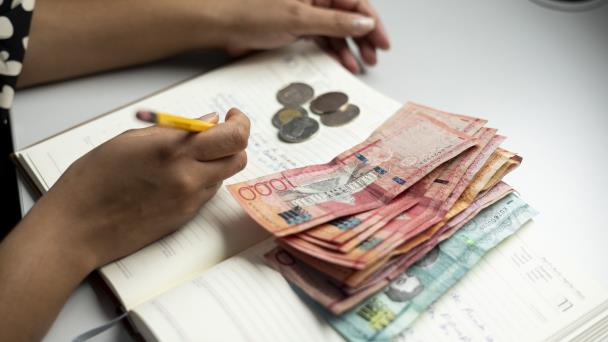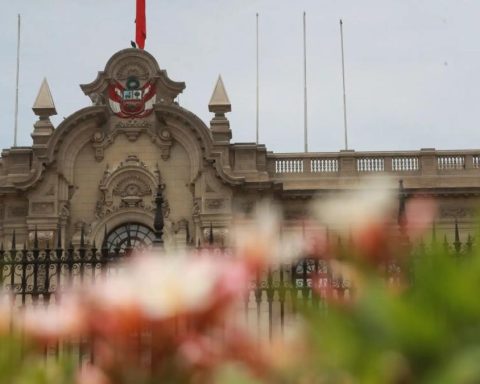If the authorities will focus on reducing the tax evasionState income could increase by more than 100,000 million pesos a year, a figure that would represent more than 80% of the resources that the government said it would urgently need to reduce the fiscal deficit, increase investments and recapitalize the Central Bank .
The Chamber of Deputies formally withdrew the proposal to rGovernment tax formwhich sought to raise more than 122,000 million pesos annually to comply with a short and medium-term action plan aimed at improving public finances. When requesting the withdrawal of the proposal, the president, Luis Abinader, made it clear that alternative measures are required to achieve some of the proposed goals.
In this context, Free Diary consulted experts and entities to analyze the impact of the tax evasion in the country. The list includes non-payment of the Tax on Transfers of Industrialized Goods and Services (Itbis), which, according to the Inter-American Development Bank (IDB), represented 4.5% of the gross domestic product (GDP), being higher than the average for Latin America and the Caribbean, which was 2.29%. This evasion represented 36.7% of the potential collections of the Itbis in 2023.
However, the economist Ellen Pérez Ducy estimates that the evasion of the Itbis It reached 44%, which is equivalent to a loss of 148,000 million pesos last year. “By just reducing it by a third, 50,000 million pesos could be obtained, almost half of what the rejected tax proposal proposed,” he said.
The tax evasion refers to any action or omission on the part of the taxpayer that implies not withholding, reporting or paying the corresponding taxes, whether on their income or in relation to the purchase of goods and services to the detriment of the collections of the State.
The economist indicated that the income Fiscal taxes have grown at a real average rate of 7.0% since 2013 while the gross domestic product (GDP) shows a real growth rate of 5.9%. “That is, the income have grown somewhat faster than GDPwhich is a good sign that points to a greater fundraising effort,” he highlighted.
However, he specified that the series is very irregular, which indicates that there are years of high contributions and years of low contributions. So it “seems” that there was a combined effect of increasing the rate and better collection.
“There has been a fundraising effort, but it appears to be focused and irregular. If the collections are volatile implies that the inspection is irregular, so there could be the presence of some type of ‘payment agreements'”, he considered.
“The theme of evasion It is complex and delicate, shrouded, by definition, in shadows. From the official estimates we only know that it is already around 44% in the Itbis“said Pérez.
![Controlling tax evasion, a challenge to improve public finances [object HTMLTextAreaElement]](https://resources.diariolibre.com/images/2024/10/22/imagen-19062024--ellen-perez-ducy-economista-10.jpg)
“If the collections are volatile it implies that the inspection is irregular, so there could be the presence of some type of ‘payment agreements'”Economist
![Controlling tax evasion, a challenge to improve public finances [object HTMLTextAreaElement]](https://resources.diariolibre.com/images/2024/10/22/caram-medium.jpeg)
“A buyer prefers to buy without an invoice, if they deduct 10%, part of the 18% Itbis, which they would charge for their purchase”Economist
Simplify the taxation
He economist and former governor of the Central Bank, Guillermo Caram, expressed his concerns about the tax evasionsuggesting that a plan must be executed to capture income.
In that order, he pointed out that the Government project income for one trillion 241,000 million pesos, and the 122,000 million pesos that were required to meet the goals represent just an increase of 10% of that figure.
In his analysis, he emphasized that since more than half of the employers in the country are informal, formalizing just 10% of them should not be a monumental task.
To do this, it proposes several strategies, emphasizing the need to simplify tax procedures, because the administration has imposed many provisions that make it difficult for taxpayers to comply.
For example, he cited prior authorization of invoice numbering, which is a process that could be eliminated; the complex administrative procedures and high tax rates that drive informality. “A consumer prefers to buy without an invoice if they discount 10%, part of the 18% of the Itbis that I would charge you for your purchase. If rates went down, there would be no margin for this operation,” Caram said.
By presenting part of the rejected tax reformthe Minister of Finance, José Manuel -Jochi- Vicente, reported that 47% of the country’s taxpayers evade paying the Itbis. For this reason, the official warned that, through the tax reformthe government would execute a plan to “attack head-on” the scourge of evasionpointing out that he would pursue the tax crime.
The Inter-American Center of Tax Administrations (CIAT) refers to a poor administrationbecause the country collects only 34.4% of its potential in terms of Itbis. In the management of Income tax (ISR) of the companies, the efficiency level is 62%.
In the most recent report “Collection Efficiency and Tax Gap in Latin America and the Caribbean: Value Added Tax and Corporate Income Tax”, the country was ranked among those with the lowest collection efficiency -period 2019-2021- due to various factors, among which the non-collection due to exemptions (18.5%) and non-compliance due to evasioninefficiency, smuggling, informality and other mechanisms evasion of taxes, equivalent to 47%.
It is part of END
The fight against tax evasion Not only should it have been considered in the reform proposal, but it should have been the main axis to increase the income fiscal because it is included in the National Development Strategy 2030 (END). In fact, it is the first pillar, detailed in article 36 of Law 1-12 of the END.
Although one of the four axes that the Government proposed to present his project tax reform contemplated the strengthening of the administration tax to reduce fraud and tax evasionthe truth is that the General Directorate of Internal Taxes (DGII) does not have published recent analyzes on how high the levels of tax non-complianceas this institution was able to confirm to Diario Libre through its communications department.
The last study in this regard was carried out in October 2018, and focused on measuring the level of tax non-compliance of two tax figures: the ISR to natural and legal persons, as well as the Itbisbecause they represented around 60% of the total collected between 2007 and 2017.


















